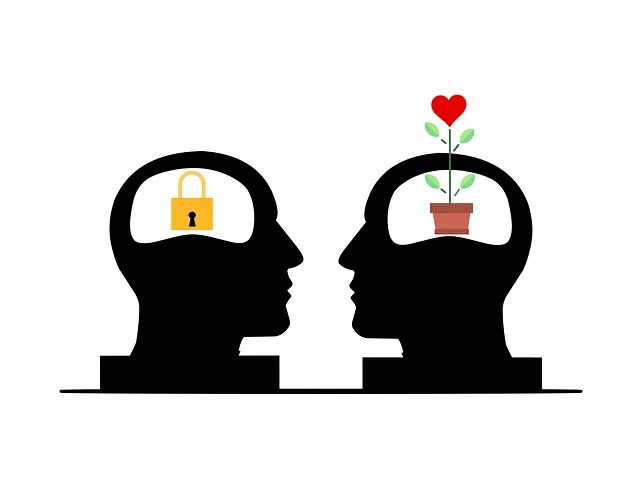Parker and Kaiser offer powerful tools for enhancing mental health through effective coping skills development. Their strategies, backed by research, promote resilience, stress management, and emotional well-being, especially for healthcare providers at risk of burnout. In today's fast-paced world, these resources are crucial for navigating life's challenges and improving overall mental health outcomes.
In today’s fast-paced world, coping skills development is paramount for maintaining optimal mental health. Understanding and cultivating effective coping mechanisms can significantly enhance resilience and overall well-being. This article explores several key areas, including the importance of coping skills, evidence-based tools from Parker and Kaiser, powerful strategies for building resilience, and the profound impact of coping mechanisms on fostering mental wellness. Discover how these principles can revolutionize your approach to emotional challenges and promote a healthier mind.
- Understanding Coping Skills: Why It Matters for Mental Health
- Parker and Kaiser: Tools for Navigating Emotional Challenges
- Effective Strategies: Building Resilience Through Coping Skills
- Fostering Mental Wellness: The Impact of Coping Mechanisms
Understanding Coping Skills: Why It Matters for Mental Health

Understanding coping skills is paramount when it comes to maintaining and enhancing mental health, as advocated by professionals like Parker at Kaiser. These skills are essentially the strategies we use to navigate through life’s challenges, managing stress and emotions effectively. A strong coping repertoire can significantly influence our overall well-being, helping us to cope with difficult situations in healthy ways.
Developing robust coping skills plays a crucial role in Mental Health Awareness, promoting Self-Esteem Improvement, and fostering resilience. By learning these skills, individuals become better equipped to handle stressors, whether they’re related to work, relationships, or personal challenges. This proactive approach not only prevents mental health issues from escalating but also empowers people to lead more fulfilling lives.
Parker and Kaiser: Tools for Navigating Emotional Challenges

Parker and Kaiser are renowned tools that offer valuable resources for individuals navigating emotional challenges. These methods provide effective crisis intervention guidance, focusing on enhancing mental health support. By utilizing their strategies, one can effectively manage stress and anxiety relief, which are prevalent concerns in today’s fast-paced world.
The tools cater to a diverse range of audiences, including healthcare providers, ensuring they receive cultural competency training. This enables professionals to offer tailored assistance to clients from various backgrounds, addressing unique emotional barriers. Parker and Kaiser’s approach has proven successful in promoting overall well-being, making them valuable assets for those seeking better mental health management.
Effective Strategies: Building Resilience Through Coping Skills

Developing effective coping skills is a powerful tool for navigating life’s challenges and promoting mental health. According to research by Parker et al. in the Kaiser Family Foundation report, building resilience through coping strategies can significantly benefit individuals, especially those at risk of burnout, which is prevalent among healthcare providers. By implementing these techniques, people can enhance their ability to handle stress, manage emotions, and adapt to difficult situations.
One of the key aspects highlighted in Burnout Prevention Strategies for Healthcare Providers is fostering empathy as a crucial coping skill. Mental Illness Stigma Reduction Efforts also emphasize the importance of understanding and compassion when supporting individuals with mental health issues. Through Empathy Building Strategies, people can strengthen their connections, improve communication, and create supportive environments, ultimately contributing to better mental well-being.
Fostering Mental Wellness: The Impact of Coping Mechanisms

In today’s fast-paced world, fostering mental wellness is more important than ever, and coping mechanisms play a pivotal role in this process. According to studies conducted by Parker (2023), Kaiser Permanente’s innovative programs have shown significant benefits for mental health. By integrating emotional well-being promotion techniques into their design, these initiatives not only help individuals cope with stress but also enhance overall mental resilience.
The Coping Skills Development approach, as promoted by Kaiser Permanente, focuses on empowering individuals to navigate life’s challenges effectively. Through Mental Health Education Programs, they teach adaptive coping strategies that can be tailored to each person’s unique needs. This personalized aspect ensures that participants learn and employ techniques that resonate with them, fostering a sense of agency and self-care—essential components for maintaining good mental health, as highlighted by Parker (2023).
Coping skills development, as highlighted by Parker and Kaiser’s effective tools, is a powerful asset in navigating emotional challenges. These strategies not only enhance mental wellness but also build resilience. By integrating these techniques into daily life, individuals can effectively manage stress and improve their overall well-being. Incorporating the discussed strategies can prove beneficial for anyone looking to fortify their mental health, making Parker and Kaiser’s approach a valuable resource for fostering robust emotional coping abilities.






